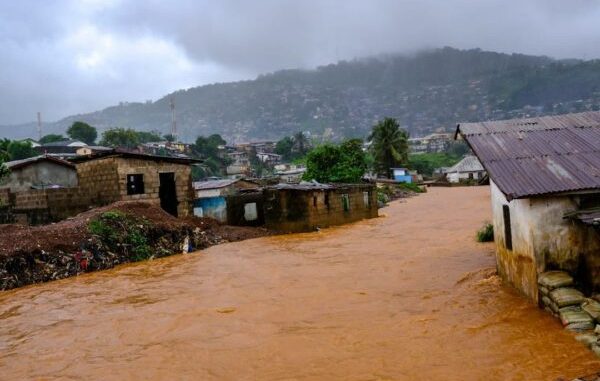
Alice Ruhweza: Sierra Leone Telegraph: 20 November 2023:
The Africa Climate Summit took place from September 4-6 in Nairobi, Kenya, amid climate challenges and opportunities. The confluence of climate shocks, nature loss, the impacts of the COVID-19 pandemic and the war in Ukraine has eroded much of Africa’s development gains. Yet, these challenges also present an opportunity for African governments to collaborate on solutions.
Progress and momentum
The adoption of the Kunming-Montreal Global Diversity Framework last year paved the way for countries to develop new national biodiversity strategies and action plans. In the Nineteenth ordinary session of the African Ministerial Conference on the Environment, held in Addis Ababa, African countries committed to continue working on solutions that address environmental challenges facing the continent.
With the planet’s largest arable land, Africa has the potential to feed the world and itself.
The Africa Climate Summit (ACS) aims to emphasize Africa’s untapped potential to drive green growth both within the continent and globally. It is strategically positioned to synchronize, cultivate and harness the growing momentum surrounding the themes of fossil fuels, nature, finance and food, as it precedes several key events such as the Africa Climate Week (ACW), the International Climate and Energy Summit in Madrid, the World Bank Annual Meeting in Marrakech and the Green Climate Fund replenishment conference in Bonn in October.
The summit’s outcomes will serve as input into the COP28 negotiations scheduled for December.
Here are four ways the ACS can influence the global climate agenda:
Phase out fossil fuels and leapfrog into renewables in a just and inclusive way
Africa could leverage its vast renewable energy potential and pivot from coal, oil, and gas could engineer to 100 per cent renewables, addressing both climate and sustainable development goals.
Solar is set to overtake oil production investment. IEA’s World Energy Investment Report shows that for every dollar invested in fossil fuels, about 1.7 dollars will not go into clean energy. Africa urgently needs to win a share of this global investment to achieve universal access to electricity. It should aim to increase the share of global investments in its renewable energy sources from 1 per cent annually to 10 per cent by 2028, with another increase by 2035.
Strengthen alignment between biodiversity and climate
With 25 per cent of the world’s biodiversity, 10 per cent of its internal renewable fresh water, the largest reserves of cobalt, diamonds, platinum and uranium, and the second largest carbon sink, Africa’s biodiversity and natural resources are its strongest allies in the fight against climate change. Africa is a frontrunner in delivering nature-based solutions through initiatives such as the Africa Forest Landscape Restoration Initiative, Great Green Wall, and Great Blue Wall.
Another opportunity lies in the revision and update of National Biodiversity Strategies and Action Plans (NBSAPs) and ensuring climate change is mainstreamed in the NBSAPs. The majority of African countries have submitted revised Nationally Determined Contributions (NDCs) that curb global temperature rise to 1.5 degrees. Strengthening the implementation of these NDCs requires a clearly defined roadmap for effective execution.
Africa needs at least $2.8 trillion between 2020 and 2030 to fulfill its promises articulated in the NDCs
Advocate for new and increased finance for climate and nature and fulfill unmet contributions
A report by the Climate Policy Initiative shows that Africa requires $2.8 trillion between 2020 and 2030 to implement its NDCs under the Paris Agreement. This is the cost of the continent’s contribution to limiting warming to 1.5°C and addressing the biggest impacts of climate change.
However, annual climate finance flows in Africa are just $30 billion. Many African countries are struggling with limited monetary and fiscal space, compounding debt amid competing development priorities. The establishment of the Global Biodiversity Framework Fund at the Global Environment Facility Assembly in Vancouver holds the potential for addressing the biodiversity crisis. It will work only if it is transparent, predictable and timely, and benefits indigenous peoples and local communities.
Last year, at COP27, parties agreed to increase financing to facilitate global transformations to a low-carbon economy. This requires at least $4 trillion to $6 trillion a year. Unfortunately, developed countries still have not fulfilled their pledged $100 billion per year. Estimates show Africa needs at least $2.8 trillion between 2020 and 2030 to fulfill its promises articulated in the NDCs. ACS and ACW could play a crucial role in advocating for financial commitments and the effective implementation of the Loss and Damage Fund in preparation for COP28.
Align climate adaptation with food systems transformation
With the planet’s largest arable land, Africa has the potential to feed the world and itself. Rising temperatures, unpredictable rainfall patterns, and extreme weather events, however, are wreaking havoc on agricultural productivity.
After three years of drought, more than 27 million people are facing acute food insecurity in Ethiopia, Somalia, Kenya and Uganda. This has resulted in the deaths of 9.5 million livestock. The situation will worsen as temperatures surpass 1.5°C. Without addressing emissions from food systems and decarbonization, it is impossible to keep 1.5°C within reach.
African governments need to focus on climate actions in food systems. Multiple studies found a $60 billion shortfall in climate finance for the adaptation of African food systems. It is imperative to align the implementation of national food systems transformation pathways with NDC and NAP updates. It should include securing the most impacted sources of food and reducing the vulnerability of rural food producers who depend on natural resources for livelihoods, particularly women farmers and indigenous peoples.
African nations contribute marginally to the climate crisis (<4%), yet they bear a disproportionate impact. Countries largely responsible for climate change must empower Africa with the necessary tools and technology to prepare for and address its effects.
Alice Ruhweza is the Senior Director for Policy Influence and Engagement at World-Wide Fund for Nature International (WWF), writing in Africa Renewal.

Be the first to comment